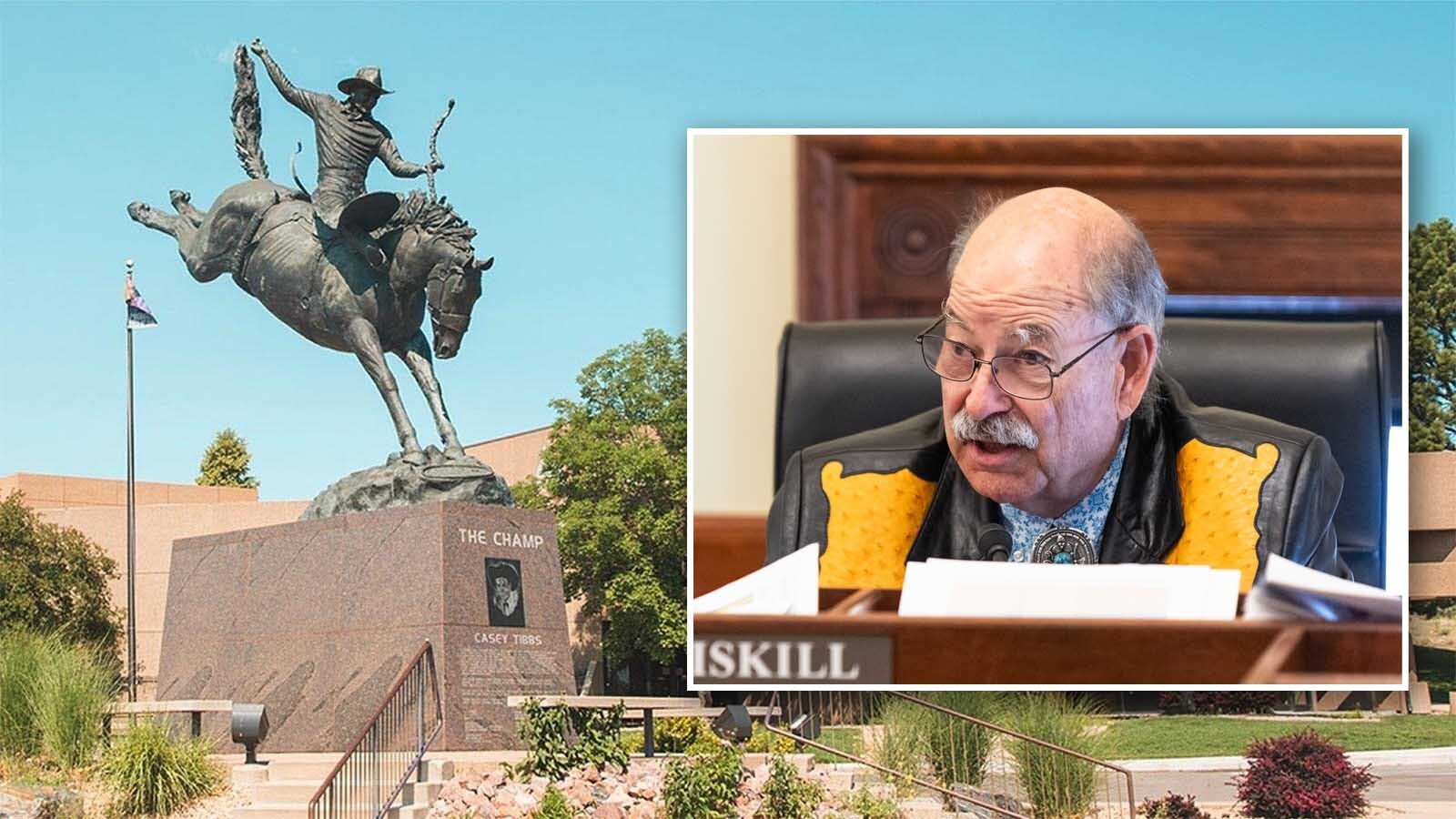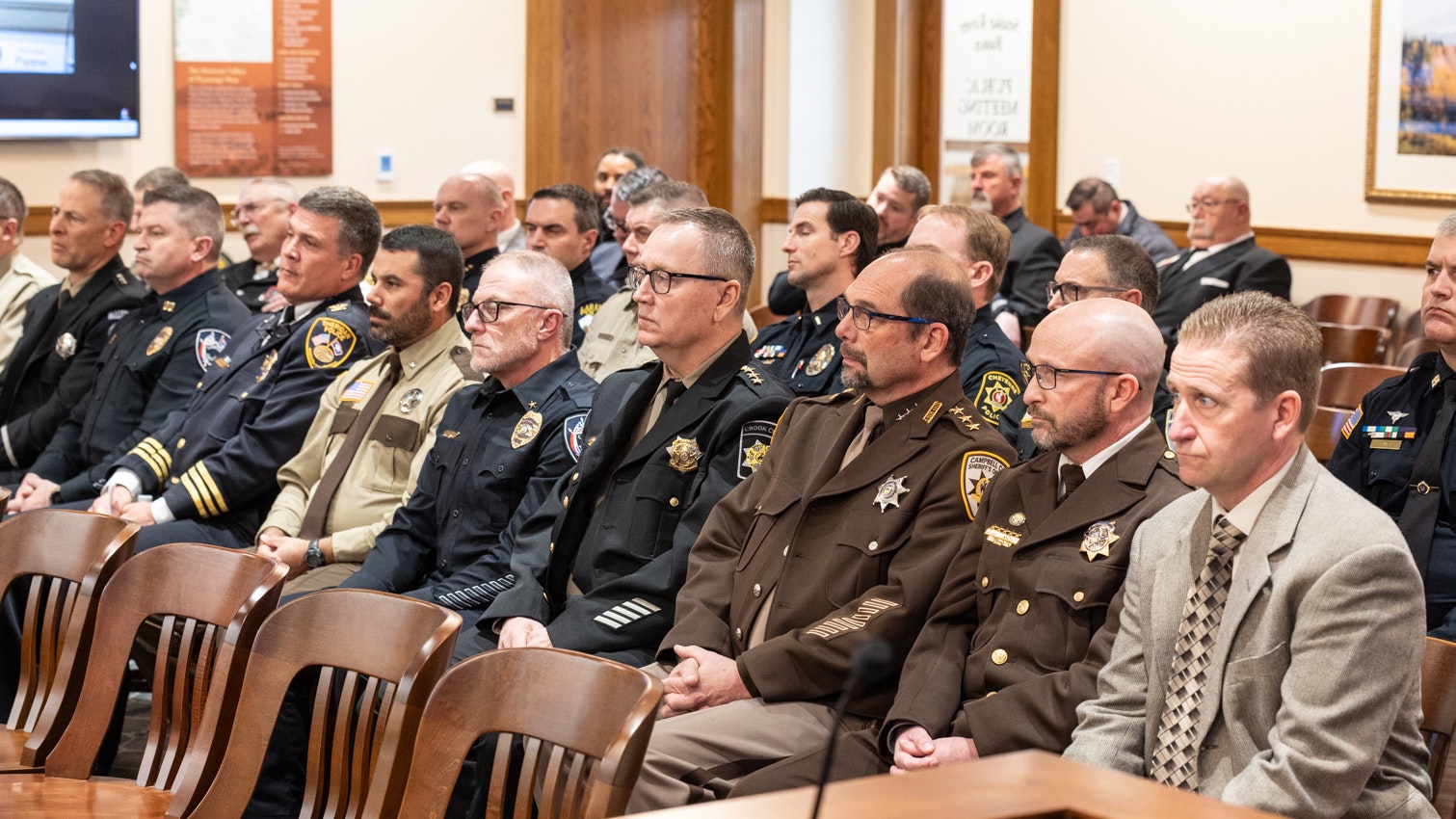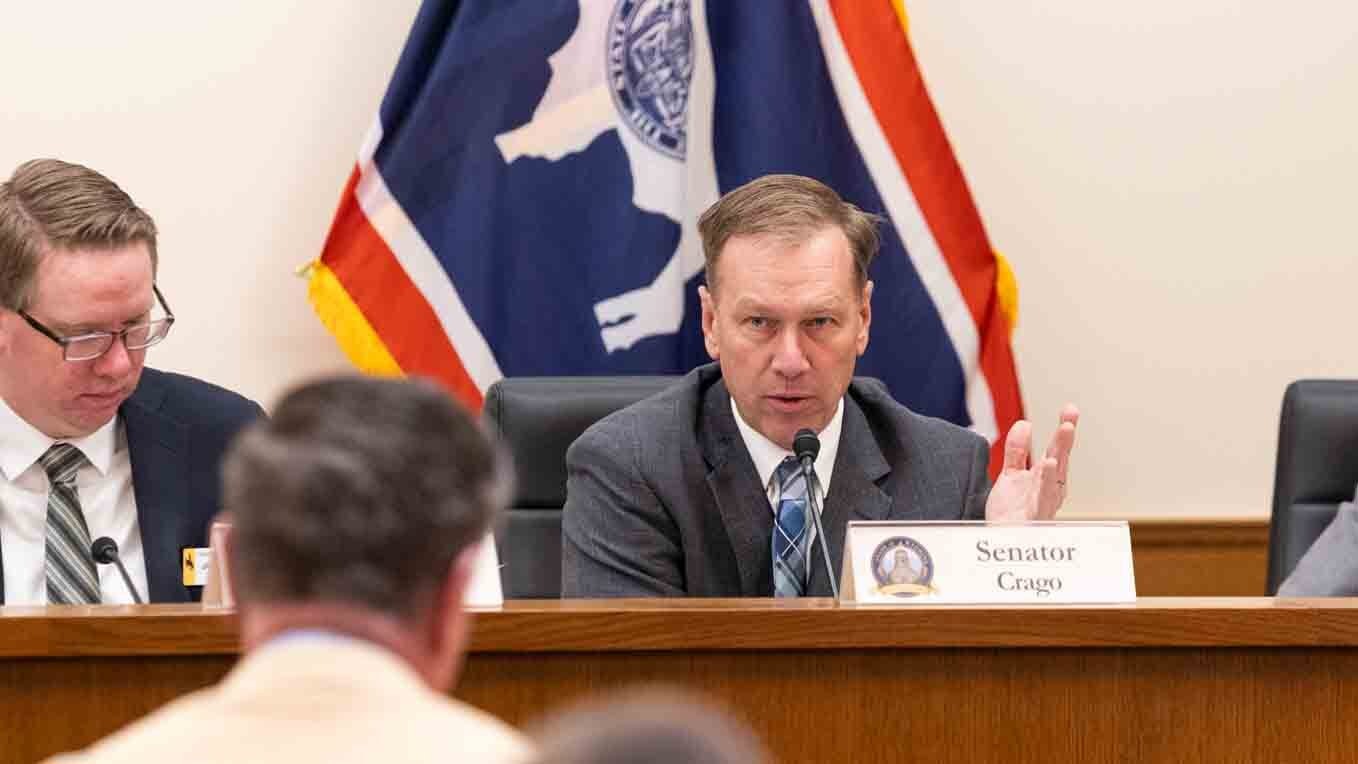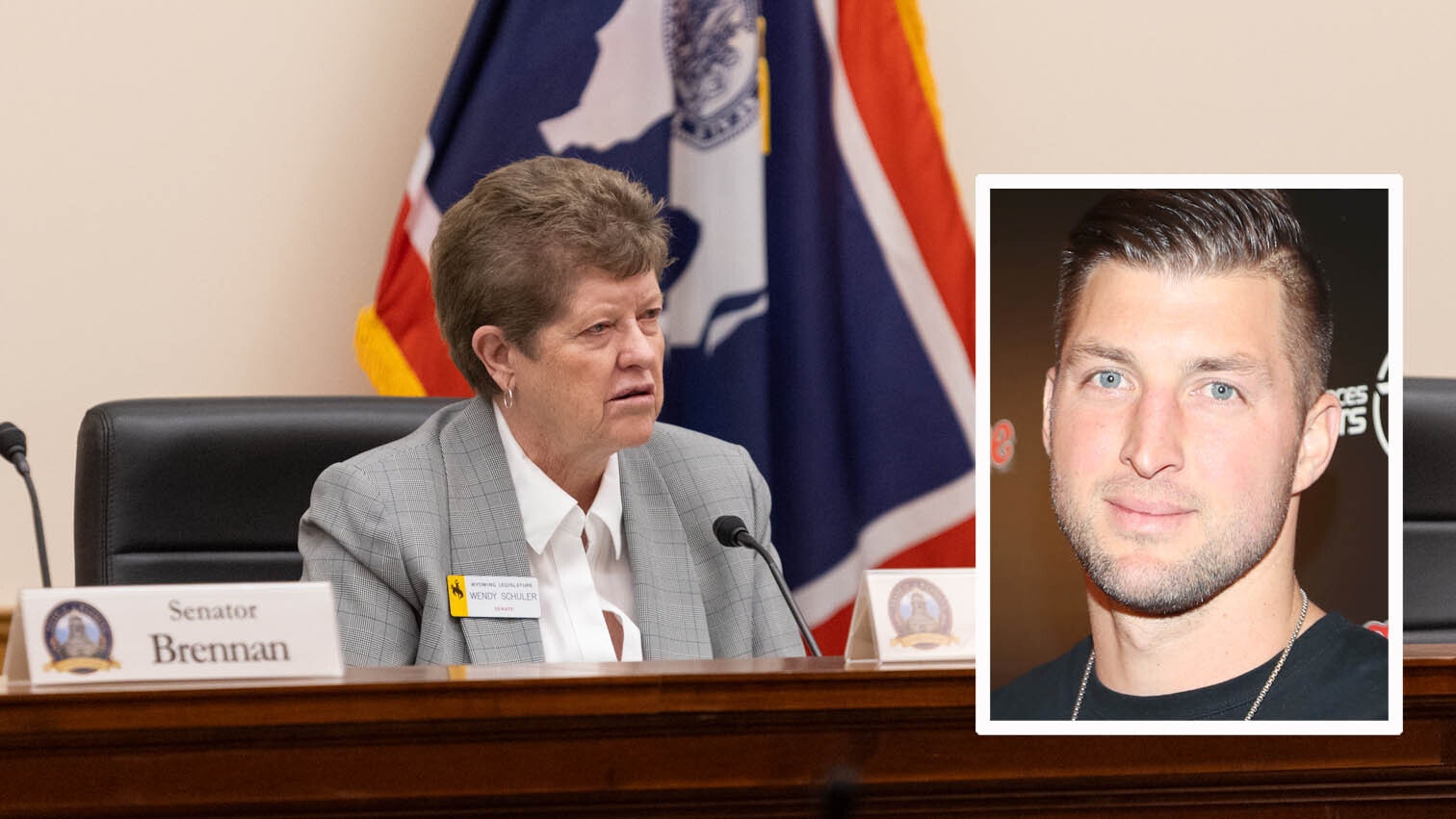Campbell County Commissioner Jerry Means said he would not have signed off on the letter his county sent this week to the U.S. Department of the Interior given a chance to review it again.
The expansive letter was approved as a consent agenda item without detailed review by commissioners, but Means said that he now has concerns about language in it regarding public land sales and the potential for nuclear waste storage.
"We do have some concerns about it. I mean, so at this moment, no, I would not sign it," Means told Cowboy State Daily about the 25-page letter sent to Interior Secretary Doug Burgum on Monday.
Campbell and Converse counties each sent detailed letters responding to the department's request for public input on regulatory reform. Both counties are driven economically by minerals extraction.
The letters, both drafted for the counties by natural resources consultant Dru Palmer, represent what officials describe as an ongoing effort to push back against federal overreach in land management decisions affecting their communities.
Both counties argue for expanded local control over energy development, mineral leasing and land use decisions on the vast federal holdings that dominate their landscapes.
Means said he has specific concern about politically sensitive language describing the potential “disposal” or sale of federal public land to private interests.
“I think it should remain the way it is,” said Means, referring to public lands remaining in public hands.
The letter, however, states Campbell County supports, “The largest acreage possible to be available for disposal, exchange or adjustment and encourage the use of public lands and resources to accommodate new growth and foster economic development opportunities."
When asked specifically about public land sales provisions in the letter, Means was direct: “No, I do not recommend public land sales."
Though not explicitly mentioned in the letter, Means worried the document might inadvertently also open the door to the possibility for nuclear waste to make its way to Campbell County.
"My concerns now would be, are we opening the door for nuclear waste in the future through these documents?" he said.
Despite his concerns, Means acknowledged positive elements in the comprehensive letter.
"It's not that I can say it's a bad one, because I see so many good things in there for coal, oil and gas. I just want to make sure that we don't commit our county to something that we regret later," he said.
Means indicated he plans to work with fellow commissioners to better understand future documents before approval.
"I just want to be very careful what I agree to and what I don't,” he said.
Meanwhile, Next Door
Converse County Commissioner Jim Willox defended the land disposal language in his county’s letter, saying it refers to strategic exchanges rather than wholesale sales.
"There always should be the opportunity to make land trades that make sense. I am putting some bookends on that," Willox told Cowboy State Daily, giving the example of isolated pieces of public land that can be combined and traded to benefit the community.
"I think in general it is better for our economy for land to be in private hands than the public, but we're not talking about national parks in Converse County," he said.
Willox noted that some past public land swaps have increased public access. As for the phrase "largest acreage possible" in the letter, Willox clarified that “it's not everything everywhere."
The Converse County commissioner emphasized the strategic importance of submitting formal comments, quoting a Sublette County Commissioner: "If you're not at the table, then you're on the menu."
This underlines the mission of the letters in his mind — that they create an official voice for county opinions and give counties standing as negotiations and possibly lawsuits arise where local governments need to ensure they're heard.
Campbell County Commission Chairman Kelley McCreery acknowledged the political sensitivity around federal land sales but defended the county's position as being case-by-case. It’s McCreery’s signature on the letter.
"We're not in agreement to just sell off a bunch of federal land," McCreery said Thursday, explaining how both Campbell and Converse counties rely on Palmer, a Lander-based natural resources consultant, to stay on top of issues impacting federal lands. Palmer drafted both letters.
"We really don't have the time to dig into a lot of this stuff,” he said.
The commission chairman also described how such items are typically handled during county meetings.
"The way this happens is we have a consent agenda with a lot of stuff on it,” McCreery said. “And that was in the consent agenda. And if you didn't pull this up on your computer and read about it ahead of time, you just say, well, we ask our director, is there anything we need to know about this? No, it's just kind of normal as to what goes on.”
When asked about other issues the county is monitoring, McCreery also expressed concerns about nuclear waste storage proposals.
"Are they going to bring in nuclear waste and everything into Wyoming?” he asked. “We’re just wondering what the Legislature — are they going to push for all this? Because we're not in favor of that in Campbell County.”
Consultant's Role
Palmer told Cowboy State Daily that the land disposal language in the letters reflects the counties' point of view.
"That has been the general position of the counties in the county in the past, but it is based on a case-by-case basis of the situation and of the details involved with a possible land disposal or acquisition or exchange," Palmer said. "So the counties have supported generally that that be an option on the table that they can exercise where it benefits the county.
"I have been working with the Campbell County Commissioners for gosh I think going on 10 years now. And so, for any of these natural resource issues that affect the county specific to energy, agriculture, recreation, policy issues related to the Bureau of Land Management or the Forest Service or other federal agencies, I have worked with them to develop comments for the commissioners to submit."
According to this week’s letters, both counties strongly oppose the Biden administration's 2024 decision to halt future coal leasing in the Powder River Basin, arguing it violates federal law and threatens local economies. They support the Trump administration's current efforts to reverse that decision.
The letters emphasize Wyoming's role in national energy production and argue that coal remains essential for grid stability and thermal energy needs. The counties also highlight ongoing carbon capture research projects near Gillette as evidence of coal's potential future role in a lower-emissions energy portfolio.
Both letters demand that federal agencies treat counties as "cooperating agencies" in environmental reviews and require consistency with local land use plans under the Federal Land Policy and Management Act.
The counties argue that federal rulemaking should undergo environmental review similar to project-level decisions, and that local governments should have enhanced participation in federal rule development processes.
They emphasize that split-estate situations, where federal minerals lie beneath private surface land, require special consideration to protect private property rights.
Also, the counties argue that the Bureau of Land Management exceeds its authority by designating "special status species" protections beyond what's required under the Endangered Species Act, and call for state wildlife agencies to maintain primary management authority.
One target of the letters is the critical habitat designation process, as the counties want greater consideration of economic impacts on local communities.
David Madison can be reached at david@cowboystatedaily.com.





